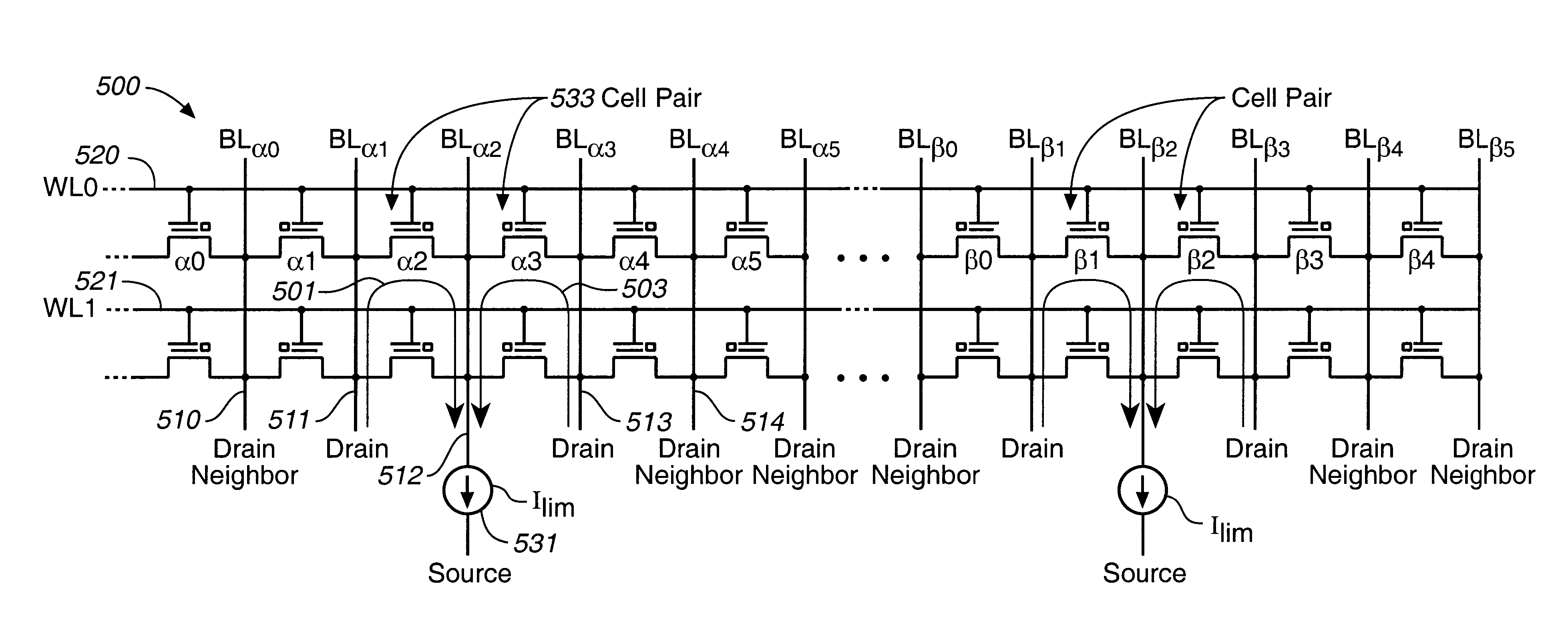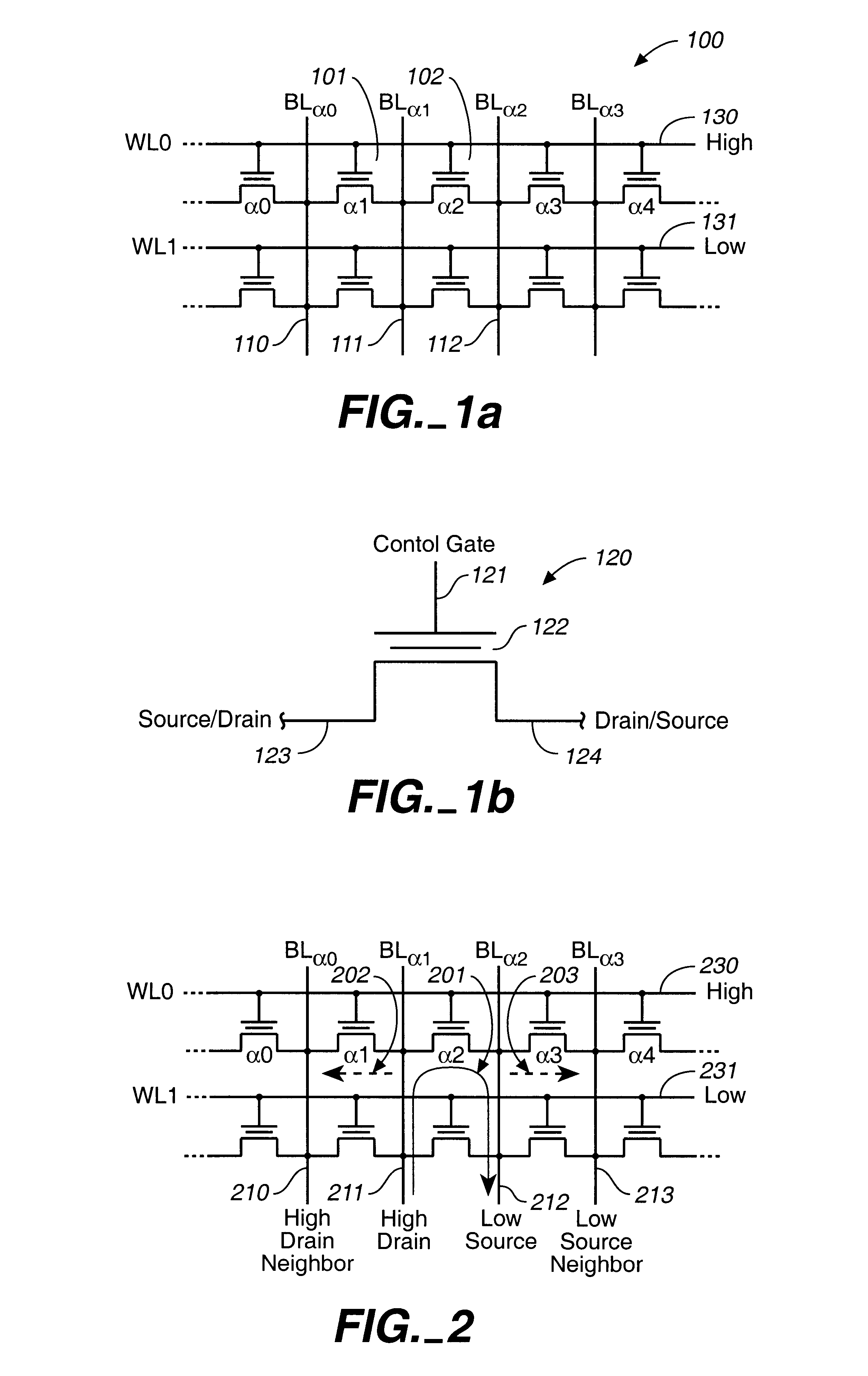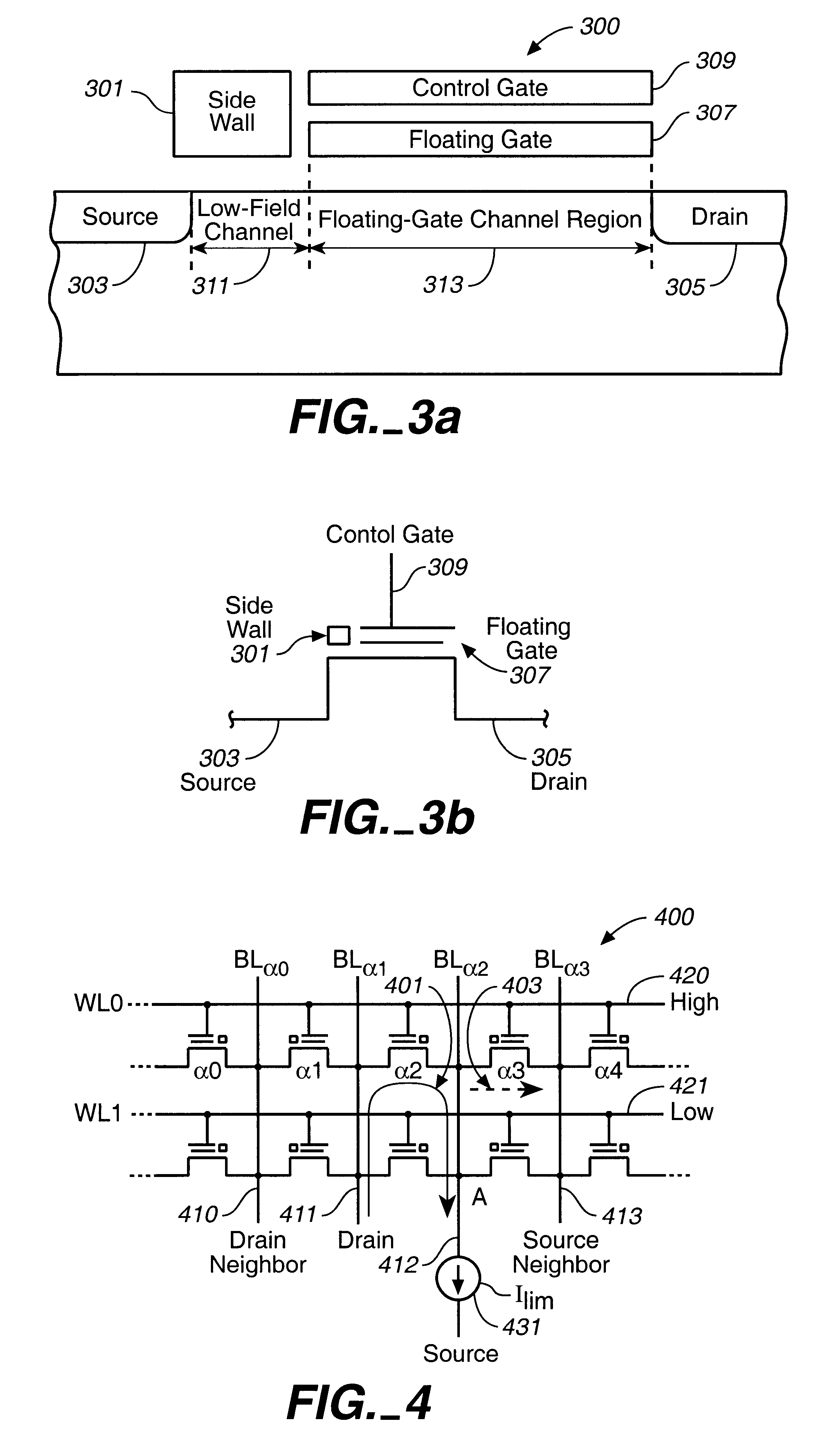Dual-cell soft programming for virtual-ground memory arrays
a virtual-ground memory and soft-programming technology, applied in the field of dual-cell soft-programming for virtual-ground memory arrays, can solve the problems of increasing power consumption, power consumption, and interference with the accuracy and efficiency of both read and program operations
- Summary
- Abstract
- Description
- Claims
- Application Information
AI Technical Summary
Benefits of technology
Problems solved by technology
Method used
Image
Examples
Embodiment Construction
The various aspects of the present invention will be described with using more than one embodiment for the non-volatile memory cells composing the memory array. The initial discussion is based on the cell structure shown in FIGS. 3a and 3b. This is followed by a discussion using an array of memory cells with dual floating gates.
The invention is directed to controlling programming current in a virtual-ground array memory architecture. The invention consists of circuitry to bias the array such that no source neighbors occur during soft programming. A feature of this bias configuration is that two cells are simultaneously soft-programmed. This dual-cell operation relies on the fact that neighbor cells will have very similar electrical characteristics and will therefore program at a similar rate. This is illustrated in FIG. 5, which is similar to FIG. 4 and depicts two groups of array cells (.alpha. and .beta.) within a larger array.
FIG. 5 again shows a pair of words-lines, selected wor...
PUM
 Login to View More
Login to View More Abstract
Description
Claims
Application Information
 Login to View More
Login to View More - R&D
- Intellectual Property
- Life Sciences
- Materials
- Tech Scout
- Unparalleled Data Quality
- Higher Quality Content
- 60% Fewer Hallucinations
Browse by: Latest US Patents, China's latest patents, Technical Efficacy Thesaurus, Application Domain, Technology Topic, Popular Technical Reports.
© 2025 PatSnap. All rights reserved.Legal|Privacy policy|Modern Slavery Act Transparency Statement|Sitemap|About US| Contact US: help@patsnap.com



